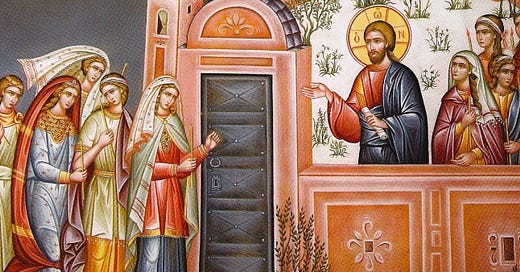I’m at the airport now, waiting for my flight home after teaching Friday and Saturday and preaching this morning. I’m still weighing today’s Gospel, the parable of the ten virgins (Mt 25:1-13), which as I said at the beginning of this morning’s sermon was anything but gospel to me when I was young. It was in fact a text of terror, more troubling and thr…
Keep reading with a 7-day free trial
Subscribe to Speakeasy Theology to keep reading this post and get 7 days of free access to the full post archives.



